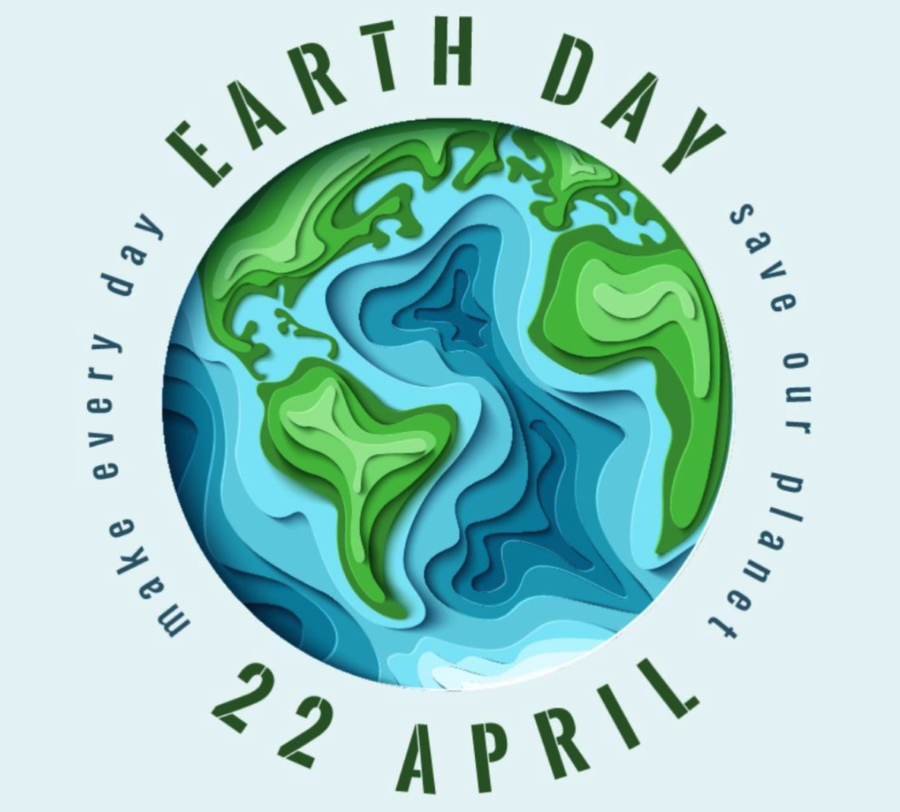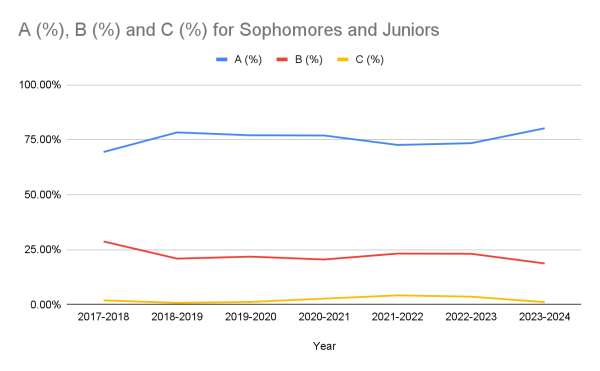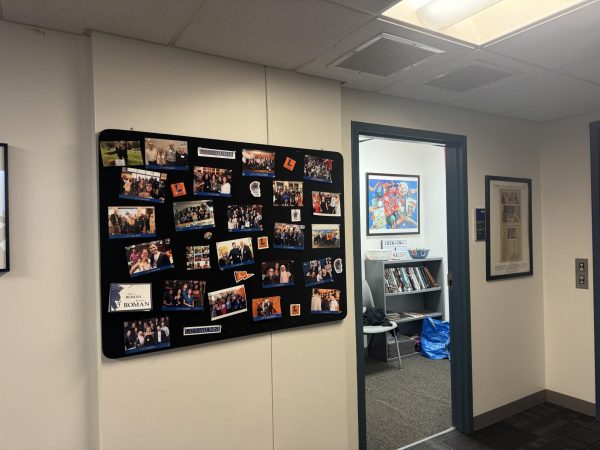Catching Up with Green Club: President Biden, Responsible Shopping, and Handcut Foods
Embarrassingly, I did not realize last Thursday was Earth Day until I checked my Instagram feed, which had been taken over by an obscure combination of mountainscapes, tips about how to reduce waste, and girls on boats “enjoying nature.” The more stories I saw about that week’s climate summit, the more I realized it was time for me to catch up on what President Biden is doing for our Earth. I promptly scheduled a Zoom call with two of Green Club’s three heads—junior Marin Creamer and senior Maya Gray—to talk all things green. They walked me through Biden’s new policies, responsible consumerism, and their club’s most recent activities. Safe to say, fighting climate change will be an uphill battle, but we are headed in the right direction.
Bea Parr: So my first question is, What has Biden done to address climate change since the start of his presidency?
Maya Gray: Well, one thing he did, I’m pretty sure on his first day in office, was rejoin the Paris Climate Agreement. Then he recently held a climate summit with a couple of leading polluting countries and pledged to cut the United States’ greenhouse gas emissions in half by 2030. And then encouraged other countries such as China and Brazil to do the same.
Marin Creamer: Those other countries are also planning on reducing their coal usage. And then Biden wants to limit fossil fuel extraction on public lands and curb investment in fossil fuel industries to hopefully bring down some of the effects of climate change.
BP: I, and I think a lot of kids at Latin, know that the climate summit happened, but I don’t actually know exactly what a climate summit means or what that entails.
MG: Oh, did we ever actually answer what a climate summit is? It’s just a gathering of world leaders to discuss how to tackle the climate crisis and what different countries are going to do, and they make public pledges. I’m not an expert, but I do know that this was a summit that Biden organized himself specifically with the intent of having multiple countries pledge what they’re going to do for the environment, and we have historically heard lots of pledges of things that countries are going to do to lower their emissions and that typically has not happened. So, it will be interesting to see if anything actually comes out of this particular climate summit.
MC: Israel was there. South Korea, China, Brazil. I know Brazil’s president vowed to end illegal deforestation in the country by 2030, and then carbon neutrality by 2050. But, as Maya said, a lot of it kind of seems like talk and not necessarily action.
BP: In your view, was this climate summit successful?
MG: We’ve never seen a commitment like this before really, and Biden is really pushing for other countries to lower their own emissions, but I don’t know. At this point, he hasn’t even announced a plan as to how the U.S. is going to go about lowering our emissions, and also he’s leaving it to the next President to finish, and we have no clue who that person is going to be. It could very well be another President like Trump who doesn’t believe in climate change, and then this pledge is all for nothing, because all of it will fall through. So I don’t think I can determine whether it’s a success or not until we actually see some kind of a game plan.
MC: Yeah, definitely. A lot of what I saw was laying out steps for what later goals would be, but nothing really seems concrete. It’s a matter of the longevity of what Biden implements.
BP: I guess we don’t know if it’ll last, but what do you think is the most significant step that Biden has taken in addressing climate change? The policy that you think will make the biggest difference, or that you’re the most excited about?
MG: I think it’s possible to lower our emissions in half by 2030. And I think that would be amazing. Lowering the emissions, by the way, is compared to the rates in 2005. I think it’s doable, but I think it’s going to require a lot of sacrifices to other things on his agenda and I think that it’s going to make a lot of people very angry. He says he can do it without stalling the economy. From what we know, typically investing in green technology is very expensive, but it pays off in the long run.
MC: I agree. He also wants to make a lot of changes in infrastructure, so that would be interesting to see. And then I’m excited that he said he’s planning on trying to restore ecosystems. He didn’t really give steps, but it’d be nice to see more wildlife.
BP: Generally, do you agree with this approach, or do you think there’s more or less he could be doing?
MG: I think this is a pretty huge goal to put forward, so I don’t know if he should be trying to tack on more on top, because this is a really big ask, because the U.S. and China are the world’s biggest polluters. That’s a lot of carbon that we need to stop emitting in a decade.
BP: We’re not all President Biden. So, what can we be doing as students, and also what are you doing as students, to help make an impact?
MG: I try to avoid single-use plastics, I use reusable masks, a reusable water bottle. I like to consider myself a conscious consumer. I’m not perfect by any means, but I definitely think before I buy, and think about what I’m buying and if I really need it. I’m very much a champion of the wait-a-couple-days-and-see-if-you’re-still-thinking-about-it, and eight times out of 10, you won’t be. Then lowering meat intake, fish intake. But I mean, it’s hard when we know that corporations are the leading polluters in the country, and that while individual action is important—and it’s not insignificant because single-use plastics are a major problem—me not eating meat for a meal isn’t going to save the world. So just stay conscious and aware of what pledges corporations are making and their negative contributions to the environment.
MC: There are a bunch of apps that check the sustainability of different companies, so I think looking at those helps. I mean, I’m definitely not a perfect environmentalist per se. I do wear recyclable, sometimes disposable masks.
BP: So these individual actions probably don’t make a huge difference, but as consumers, we can speak with our wallets as to which companies are going to make it, and if we can make the environmental ones make it, that’s a good thing.
MG: And you know, support small businesses, support slow fashion, all that good stuff.
BP: I saw that there was a beach sweep the other day, and I was wondering what Green Club has been up to lately in general.
MC: Oh, we’ve been doing a lot of exciting stuff. We had a climate neutral Latin alum come in. She talked to us about how she got to where she is and any pushback she gets with her job. Then one of our members, Alessandra Mafrici, brought her grandfather, who started Anguil, to discuss environmental sustainability.
MG: It’s an environmental technology supplier, a trusted air and water solutions supplier. They have green environmentally friendly technology for air and water. They spoke with us. So what else have we done? We organized the beach sweep, which went very well. I think we had about 30 people come, which was amazing. We’re definitely planning on doing more of those next year. We, as in Marin and Keely [Moll ‘22].
MC: We met with Handcut Foods.
MG: Not much came out of it, but we met.
MC: Yeah, they kind of told us it’s on the students to not use plastic in their meals. That was kind of the moral of the story.

Bea Parr (‘21) is a senior at Latin and is very excited about serving her second year as one of The Forum’s Editors-in-Chief. In her articles, she...
























































